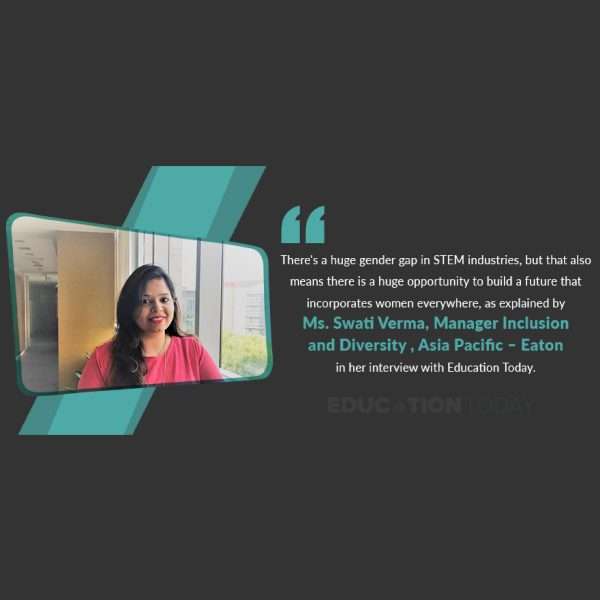What does the International Women’s Day slogan, “Women in leadership: Achieving an equal future in a COVID-19 world” mean for you?
In this new “normal” of working from home, companies like ours have a responsibility to put policies in place to ensure women don’t suffer from either isolation or overwork and can feel part of an inclusive workplace. An inclusive workplace also implies more women in the top hierarchy and decision-making positions. We are witnessing a gradual change towards more women being part of the boardroom debate within organizations, with many of them at the helm of affairs of top multinational companies. Though the desired parity and diversity across organizations remains to be achieved, we are observing a positive trend. In order for women to gain more leadership positions, there needs to be a greater pool of women in the workforce. Proactive policies to fully tap women’s underutilized potential can lead to more women working at all levels, better decision-making, and greater prosperity.
How you perceive education as a path to empowerment?
Each girl deserves the opportunity to pursue her passions and fulfill her limitless potential. Education allows them to learn and try new things, supports them when they stumble, and then offers freedom to express themselves. Investing in education is like investing in their bright future. It makes them self-reliant.
What is the current landscape of gender equality in science, technology and innovation fields globally?
The world has made considerable strides in the last couple of decades when it comes to women’s inclusion in the workforce. Despite all the progress that women have made, there still exists a gap in gender diversity when it comes to STEM. The proportion of women employed in science is smaller could also be due to challenges faced by girls in pursuing education in STEM subjects. It is both due to interest levels and lack of opportunities. This gender disparity which begins in high school and university becomes even more pronounced when making career choices. Fortunately, few women have managed to reach respectable positions in big tech companies inspiring far more girls to pursue a STEM career.
Could you please elucidate on the STEM education in India, with a focus on female empowerment?
STEM education could become a major driver of future economic growth in a young country like India, with a strong youth demographic. Learning 21st-century skills and a ‘mindset’ of STEM, characterized by digital fluency, critical thinking, and the ability to solve problems through creativity, could enable girls to develop a well-rounded future and careers. It will also increase their chances of occupational and income mobility, plus help them learn to question, experiment and develop their own companies.
How can we concretely engage girls in science-related fields of studies and careers?
The best way to get females interested in science-related careers is to show them that STEM is not a male-dominated field. The most-effective way of doing this is by increasing the number of visible female role models in the industry.
Pandemic-related school closures and limited access to distance learning initiatives are stopping girls from continuing their studies. How could we address this disproportionate effect of COVID-19 on girls?
Attending online classes from home and supporting house chores has been quite exhausting for the girls/students. However, we at Eaton decided to run all our programs for skilling talents even during the pandemic. For iTeach and Udayan Care, we worked closely towards seeking support for collecting mobile handsets and raising funds for buying a new handset. This helped us to shift our engagement from physical to virtual. The support was not limited to academics or mentoring; we went beyond virtual engagements and supported the community and student’s family with ration kits whose parents lost the job due to COVID.
We should support the extended community on their living conditions, reduce economic stress, and sharpen digital skills. As we move towards the digitalized world, online learning is becoming the preferred way amongst institutions. However, in rural and semi-rural areas, very few people have access to computers or laptops. Organisations can partner with NGOs to collect used laptops which can be donated to girls. We can also set up mobile reading camps or libraries for student’s easy access to information.
May we have your thoughts on Government initiatives and policies for increasing access and improving the quality of education for girls?
In the past, India has taken several steps and launched many schemes and campaigns to help the country attain desired education goals of equal and universal access. However, In India girl’s greatest challenge is more to do with basic amenities at institutions rather than teaching. The government should introduce more schemes to promote girl education. It will require a much effective implementation framework along with a greater level of commitment of people.
What does EATON do to support girls to reach their full potential where education is concerned?
Eaton has a well-structured approach, along with several programs and initiatives covering women from all age-groups, societal strata, and educational levels. We run a pan India educational scholarship program called ‘Pratibha’ for women engineering talent at both undergraduate and post-graduate levels. This scholarship program honors outstanding female students at the leading engineering institutions in India, evaluating them not only on academic performance, but also on their co-curricular achievements. Udayan Shalini Fellowship is another initiative like this that the organization runs for young people. It is a personality development program supported by mentors for talented girls from weak socio-economic backgrounds.
In addition to technical knowledge and hands-on experience, we facilitate soft-skills training, team-building workshops, and leadership and mentoring sessions to enable them to take on leadership roles in the near future.

